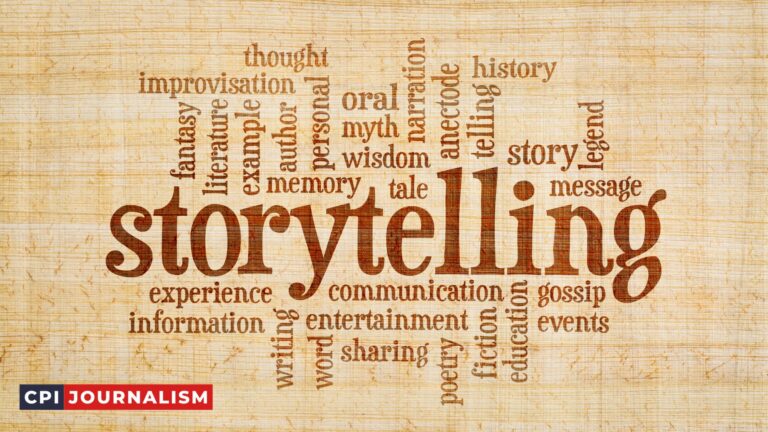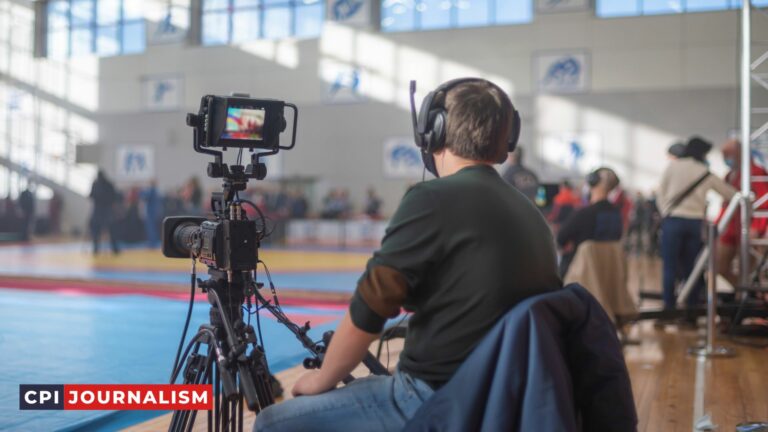What Are The Skills Required To Be A Successful Sports Journalist?
Greetings to all aspiring sports journalists! As an experienced journalist, I understand that becoming a successful sports journalist is no easy feat. It requires a unique set of skills that are not only important for writing compelling stories, but also for staying ahead of the competition.
In this article, I will discuss what skills are necessary to become a successful sports journalist and how they can be honed to ensure success. I hope my experience and expertise can help guide and inspire the next generation of sports journalists.
A. Definition of a Sports Journalist
A sports journalist is defined as a person who is engaged in covering sporting events and writing about them for publication in newspapers, magazines, and websites.
The primary aim of a sports journalist is to provide accurate and engaging information about the latest developments in the world of sports, including news, scores, analysis, and interviews with athletes, coaches, and other people involved in the sports industry.
In addition to writing articles and reports, sports journalists may also be involved in broadcasting and other forms of media, such as creating podcasts, videos, and other multimedia content. They may also be involved in organizing and moderating panel discussions, press conferences, and other events related to sports.
Sports journalists are expected to be knowledgeable on the sport they cover and have an understanding of the rules and regulations that govern it.
They must also be able to write in a clear, concise, and accurate manner, as well as have the ability to conduct interviews with athletes, coaches, and other people in the sports industry.
They must also have the ability to work in a fast-paced environment and possess strong organizational and communication skills.
B. Overview of the Skills Required to be a Successful Sports Journalist
Sports journalism is a competitive and demanding field, and those who want to be successful must possess certain skills in order to excel. The first skill needed is a deep knowledge of the sport you wish to cover.
This includes knowledge of the teams, the players, the rules, and the leagues or associations. You must also stay up-to-date on the latest developments in the sport, and be able to anticipate changes and trends.
Another skill needed is an ability to write well. Good writing skills are necessary for crafting compelling stories, as well as for condensing complex information into easily digestible pieces.
Sports journalists must also be able to tell compelling stories, and have the ability to craft narratives that intrigue and engage readers.
In addition to writing skills, a successful sports journalist must also possess strong research skills. This includes the ability to find reliable sources, verify facts, and uncover stories that are often overlooked.
Investigative skills are also important, as sports journalists often need to dig deep and uncover stories that are not readily available.
Finally, good communication skills are essential for any sports journalist. This includes the ability to network and build relationships with sources, and to effectively communicate stories to editors and publishers.
Sports journalists must also be able to work independently, and be able to juggle multiple tasks and deadlines.
Writing Skills
Writing is a key skill for any successful sports journalist, and the ability to write compelling, accurate, and exciting stories about sports is essential for success.
Even if you’re a great interviewer or have access to the latest data and technology, if you can’t write compelling stories that capture the essence of the sport, you won’t be successful.
Sports journalists must be able to write clearly and concisely, while also maintaining a strong and engaging voice.
Writing for sports journalism is different than other forms of journalism, as you must be able to capture the excitement and drive of each game or event. Additionally, you must be able to distill complex information into language that is easily understood by the average reader.
Sports journalists must also be able to create stories that are timely, relevant, and engaging. They must be able to find the “angle” in a story and be able to craft a narrative that captures the attention of the reader.
Additionally, sports journalists must be able to keep up with the latest news and trends in the industry, and have the ability to quickly and accurately report on breaking stories.
Finally, sports journalists must be able to write stories that are both entertaining and informative. They must be able to present facts and figures in an interesting way, and be able to provide insight into the game or event that the average reader may not have noticed.
Additionally, they must be able to find creative ways to tell stories, and be able to utilize multimedia elements such as video, audio, and graphics to enhance their stories.
A. Ability to Write Accurately and Concisely
One of the most important skills a successful sports journalist must possess is the ability to write accurately and concisely.
A sports journalist must be able to clearly and effectively communicate the news, stories and information they uncover in a manner that is both informative and engaging.
It is essential for a sports journalist to have a strong command of the language they are writing in, including spelling and grammar.
They must understand the importance of writing concisely and accurately, as this can make the difference between a great article and one that falls flat.
Accurate and concise writing is essential when it comes to reporting on sports. The journalist must be able to capture the action and drama of a game or match and convey it in an engaging way. This requires skillful writing that is both descriptive and compelling.
A sports journalist must be able to effectively communicate the news and information they uncover in a manner that readers can easily understand.
Finally, a sports journalist must possess the ability to meet tight deadlines and produce quality work on time. A journalist must be able to juggle multiple tasks while still producing accurate and concise content.
It is essential for a sports journalist to be able to quickly and accurately analyze and interpret the information they uncover and turn it into interesting and engaging content that can be published in a timely manner.
B. Ability To Write in Different Styles
Sports journalism is a field that requires versatility and great writing skills. To be successful as a sports journalist, it is important to be able to write in different styles.
From long-form feature stories to recaps and analysis pieces, sports journalists need to be able to write in all styles.
In addition to being able to write in different styles, sports journalists must also be able to craft stories that appeal to different audiences. For example, a story about a high school basketball game will require a different style and tone than a story about the NBA.
The ability to adapt to different audiences is essential for success in sports journalism.

Sports journalism also requires writers to be able to develop interesting angles and topics to write about. This involves doing research and having an understanding of the latest trends in the sports world.
Successful sports journalists are able to develop unique angles and topics to write about, making their stories more interesting and engaging.
Writing in different styles is an important skill for any sports journalist. It is important to be able to adapt to different audiences and topics to ensure that stories are engaging and interesting. With the right skills and knowledge, sports journalists can become successful in their field.
C. Ability to Research and Gather Information
One of the most important skills a successful sports journalist needs is the ability to research and gather information. The ability to research and find the right sources of information and data is essential in order to produce accurate and reliable reports.
A sports journalist needs to have a deep understanding of the sport they are covering, and the ability to pursue accurate and reliable sources of information is necessary in order to produce a comprehensive report.
A sports journalist should be able to find and access reliable sources of information quickly and accurately, to ensure that their reports are timely and relevant.
This means being able to search for and find the right sources of information, as well as having the necessary skills to use them effectively. This could include using search engines, websites, databases, and other sources of information to find the right information.
A successful sports journalist should also have the ability to interview people and ask the right questions, to get the most out of the interview.
This is an important skill for a sports journalist, as it allows them to gain an understanding of the people they are interviewing and the sport they are covering.
It also allows them to gain insight into the opinions and perspectives of the people they are interviewing, which is essential in producing an accurate and thorough report.
Finally, a successful sports journalist should have the ability to synthesize and organize the information they have gathered.
This means being able to take the information they have gathered and organize it in a way that is easy to understand and read, while still providing accurate and reliable information.
This is a key skill for any sports journalist, as it is essential in producing reports that are clear and concise, while still providing readers with accurate and reliable information.
D. Ability to Craft Engaging Headlines
Sports journalism is a highly competitive field, and one of the key skills required to be successful is the ability to craft compelling headlines.
Being able to create headlines that draw in readers and encourage them to click through to a story is essential for any journalist, but especially for those who specialize in sports journalism.
Headlines need to be both accurate and engaging, so it’s important to find a balance between the two. Researching the topic and understanding the current trends in sports coverage is a great way to ensure that your headlines are up-to-date and relevant.
It’s also important to think about how your headline will grab the reader’s attention and make them want to read the article.
When crafting headlines, consider using words that are interesting and eye-catching, such as “surprising” or “unbelievable.” These words often help to draw readers in and create an emotional connection with the story.
It’s also a good idea to use strong verbs and active language, as this will make the headline more engaging and easier to read.
Finally, be sure to use proper grammar and spelling when crafting headlines. This will help to ensure that readers take your story seriously and that they don’t get turned off by any errors that may be present.
With the right skills and strategies, crafting engaging headlines is an essential skill for any successful sports journalist.
Communication Skills
Sports journalism is an incredibly competitive field and it is essential for any aspiring sports journalists to have strong communication skills in order to succeed.
Good communication skills will allow you to interact with coaches, players, and other members of the sports community in order to gather the information you need to write an effective article.
Firstly, it is important to have the ability to conduct interviews effectively. You should be able to ask questions in an organized and professional manner while also making sure to stay focused on the topic at hand.
Additionally, it is important to be able to effectively listen and interpret what your interviewees are saying in order to get all the information and quotes you need.
In addition to interviewing, it is important to have strong writing skills in order to properly convey the information that you have gathered.
This includes being able to write clearly and accurately about sports topics, as well as having the ability to write in an engaging and entertaining way.
Finally, it is important to have good social media skills in order to promote your work and help increase your readership. This includes having an understanding of how to effectively use various platforms to promote your articles, build relationships with sources, and engage with readers.
Having strong communication skills is essential for any aspiring sports journalist. It is important to make sure you have the ability to effectively conduct interviews, write articles, and use social media platforms in order to be successful in the field.
A. Ability to Communicate Effectively
One of the key skills required to be a successful sports journalist is the ability to communicate effectively. This means being able to craft stories that are interesting, informative, and engaging. It also means being able to effectively communicate with sources, editors, and other journalists.
The ability to communicate effectively requires strong writing and research skills. As a sports journalist, you must be able to write clearly, concisely, and accurately.
You must also be able to conduct research and source interviews to gather the facts and quotes you need to craft your story.
The ability to effectively communicate verbally is also essential. You must be able to ask the right questions and listen carefully to the answers. You must be able to build relationships with sources and other journalists so you can get the information and quotes you need.
Finally, you must be able to communicate effectively with editors and other members of the media. You must be able to take and give direction, provide feedback, and collaborate to create the best piece of work possible.
If you have the ability to communicate effectively, you will be well on your way to becoming a successful sports journalist.
B. Ability to Interview Sources
As a sports journalist, you must be able to interview sources effectively in order to obtain the information you need to write your stories.
You must be able to ask the right questions and then listen carefully to the answers. It is important to understand that the key to a successful interview is not only the questions you ask, but also the responses you get.
In order to interview sources effectively, you need to be able to build rapport and trust with the person you are speaking to. The more comfortable they feel when talking to you, the more likely they are to provide you with the information you need.
It is also important to be able to think quickly on your feet. When interviewing someone, you may not always get the answers you are looking for, so being able to think of creative ways to get the information you need is essential.
Finally, you must be willing to take risks. As a journalist, it is important to push the boundaries and ask tough questions in order to get the best story. You must be willing to take risks and be bold in order to get the answers you need.
C. Ability to Network
As a sports journalist, it is essential to build a strong professional network. This network will provide you with invaluable contacts and sources of information that you can use to further your career.
To create a strong network, it is necessary to develop relationships with other journalists, sports teams, athletes, and organizations.
Connecting with these individuals and organizations will give you access to exclusive stories and up-to-date information that you can use to build your portfolio.
It will also open up opportunities to attend events, such as press conferences, interviews, and team practices, that you may not otherwise have access to.
To make the most of your network, it is important to stay in contact with your contacts on a regular basis. Make sure to send out regular updates and notifications about your work, and give back by helping your contacts with their own projects.
This will help to foster trust and loyalty between you and your contacts, and will ensure that your relationships remain strong.
Finally, it is important to maintain an online presence. A well-crafted website or blog can help to showcase your work, and social media can be used to promote your articles and build relationships with other journalists.
Social media can also be used to obtain feedback on your work, which can help you to refine your skills and become a better journalist.
D. Ability to Adapt to Different Audiences
As a successful sports journalist, you will often find yourself in a variety of different environments and settings, such as press boxes, locker rooms, and other sports venues. In such scenarios, you will need to be able to quickly adapt to the different audiences you encounter.
For instance, you will need to be able to engage with athletes and coaches who might not have the same level of knowledge or experience as you.
You will need to be able to simplify the story for them without losing the important information. Additionally, you should be able to adjust the language and terminology used to suit the audience better.
You should also be able to identify the key audience for each story and tailor your message accordingly. While the same story may be suitable for a general audience, it might require a more detailed approach for a specialized audience.
As a sports journalist, you should be able to determine what the key audience is and how best to communicate the story to them.
Finally, you should be able to recognize when it is appropriate to use humor and when it is not. Different audiences will have varying levels of tolerance for jokes, and it is important to be aware of this.
Being able to adjust your writing to suit the tone of the audience is an essential skill for any successful sports journalist.
IV. Technical Skills
Sports journalists need to be well-versed in a variety of technical skills to be successful in their profession.
These include proficiency in the use of multiple software programs, such as Adobe Photoshop, Adobe InDesign, and Microsoft Office; knowledge of HTML, CSS, and other web development languages; and a familiarity with audio and video editing programs.
A successful sports journalist should also have an excellent command of the English language; strong writing skills; an eye for detail; and an ability to create compelling, engaging stories.
Moreover, a good sports journalist should have a broad understanding of the game and its rules, as well as a good knowledge of the sport’s history and culture.

They should also be able to draw upon their knowledge of statistics to provide insight into the game, as well as to identify emerging trends.
Finally, sports journalists should be comfortable with using social media, both as a news-gathering tool and to promote their work.
They should understand how to best reach an audience, and be familiar with the most popular social media platforms, including Twitter, Facebook, and Instagram.
A. Knowledge of Social Media Platforms
As a sports journalist, it is necessary to have a thorough understanding of the various social media platforms available.
The ability to use these platforms effectively can make a huge difference in the success of any sports journalist.
It is important to have a sound knowledge of the various social media platforms such as Twitter, Facebook, Instagram, YouTube, and others. A good sports journalist will keep up with the latest trends and updates on these platforms and use them to their advantage.
This includes staying active on the platforms and developing relationships with key influencers in the industry.
In addition, a good sports journalist should be able to create and post engaging content on these platforms. This includes creating interesting posts, videos, and photos that can engage and draw readers to the particular story.
It is also essential to use hashtags to help increase the reach of the post, as well as recognize and thank those who have shared or commented on the post.
Finally, it is important to monitor the performance of the post and adjust the strategy accordingly. This includes tracking the number of views, likes, comments, and shares the post has garnered and making adjustments to the content if necessary.
Overall, knowledge of social media platforms is an essential skill for any successful sports journalist. It is important to stay up-to-date with the latest trends and updates on these platforms and use them to reach new audiences and build relationships with key influencers.
It is also important to be able to create and post engaging content on these platforms, as well as monitor the performance of the post to ensure maximum reach and engagement.
B. Knowledge Of Video And Photo Editing Software
In the world of sports journalism, it is vital to have a good understanding of video and photo editing software. This will allow you to create professional looking videos, photos and graphics to accompany your stories.
Having knowledge of these programs allows you to create compelling visuals that can enhance your stories and help you stand out from the competition.
When it comes to video editing programs, there are many options to choose from, such as Adobe Premiere Pro, Final Cut Pro, and Avid Media Composer.
If you are just starting out, it is best to use a program that is user-friendly and has a lot of tutorials and online help guides so you can easily learn the basics. As you gain experience, you can take advantage of more advanced features.
When it comes to photo editing programs, Adobe Photoshop is the industry standard. Photoshop offers a wide range of features, from the basics of cropping, resizing and color correction to more advanced tools like layers, masks, and blending options.
Again, there are plenty of tutorials and help guides available online to get you started.
Having a good knowledge of video and photo editing software is essential for any sports journalist. With the right tools, you can create compelling visuals that will help your stories stand out and attract more readers.
C. Knowledge of Web Design and HTML
Sports journalism has evolved rapidly in recent years, and web design and HTML are increasingly important skills for aspiring sports journalists to possess.
With the rise of digital media, it is essential for sports journalists to have a working knowledge of web design and HTML in order to effectively communicate their stories to their readers.
The ability to design visually appealing webpages and write HTML code is critical for sports journalists to be competitive in today’s market.
When creating a webpage, sports journalists must consider factors such as layout, color scheme, navigation, ensuring webpages are mobile-friendly, and how to optimize the page for search engine optimization (SEO).
Knowing how to write HTML code is also essential, as it allows sports journalists to control the content and formatting of their webpages.
Sports journalists should also have a basic understanding of how to use popular web design software, such as Adobe Dreamweaver, as well as how to use HTML editors.
Knowing how to use these tools can make creating webpages much easier and faster, and also allow sports journalists to create more unique and creative webpages.
Finally, having a basic understanding of web analytics can also be beneficial for sports journalists. Web analytics allow sports journalists to track their webpages’ performance and identify areas for improvement.
This can help sports journalists create more successful webpages, and thus help them be more successful in their careers.
In summary, having a working knowledge of web design and HTML are essential skills for aspiring sports journalists.
Knowing how to create visually appealing webpages, write HTML code, use web design software, and understand web analytics can help sports journalists create successful webpages, and thus help them be more successful in their careers.
D. Knowledge of SEO and Digital Marketing
As a successful sports journalist, it is essential to have a good understanding of SEO and digital marketing.
SEO stands for “Search Engine Optimization” and it is the process of optimizing a website to improve its ranking in search engine results pages (SERPs).
By utilizing SEO tactics and strategies, a sports journalist can ensure that their content is found easily and quickly by those searching for relevant topics.
Additionally, knowledge of digital marketing is key to success as a sports journalist. Digital marketing is the practice of promoting a product or service through digital channels such as email, social media, and websites.

By leveraging digital marketing strategies, a sports journalist can increase their reach and visibility, as well as ensure that their content is seen by the right audiences.
Finally, knowledge of email marketing is essential for a sports journalist. Email marketing allows for the direct communication between a sports journalist and their subscribers. It is an effective way to build relationships, promote events and products, and more.
By leveraging email marketing, a sports journalist can drive more traffic to their website and increase their overall visibility.
V. Analytical Skills
A successful sports journalist should have excellent analytical skills. This is essential in order to be able to decipher complex data and draw meaningful conclusions from it.
You should be able to break down complex stories into its component parts and examine the underlying dynamics of each.
In addition, you should be able to identify the key points of each story and then use those facts to draw meaningful insights that can be used to inform your writing.
You should also be able to analyze the different types of evidence and sources that you encounter, and be able to assess how reliable and accurate they are.
Furthermore, it is important to be able to take an analytical approach to the reporting process. You should be able to think critically about the stories you are covering and be able to identify potential biases or gaps in the available evidence.
This will help you to produce more accurate and balanced reporting.
Finally, analytical skills are also important when it comes to the editing process. You should be able to assess your own work and the work of others, and be able to identify any mistakes or omissions that need to be corrected. This will help to ensure that the final product is as accurate and informative as possible.
A. Ability to Analyze and Interpret Data
A successful sports journalist needs to have a keen eye for detail and the ability to analyze and interpret data. This involves being able to draw meaningful conclusions from the data, and also to understand how this data can be used to create compelling stories.
As a sports journalist, you will often be required to interpret statistics and use them to tell a story. This means that you need to be able to comprehend and analyze numerical data, draw meaningful conclusions from it, and then turn it into a narrative.
In addition to interpreting and analyzing data, you will also need to be able to interpret trends. This means looking at the data and being able to identify patterns and predict future outcomes.
This requires a good understanding of the sport, and the ability to draw meaningful conclusions from the data. It also requires the ability to identify and take advantage of any potential stories or angles which may arise from the data.
Finally, being able to interpret data also means being able to identify any potential risks or opportunities associated with the data. This means being able to see the potential negative impacts of certain data, or the potential opportunities which may arise from it.
Being able to identify these risks or opportunities will help you to create more compelling stories and ensure that you remain on top of the latest news and trends.
B. Ability to Analyze and Interpret Statistics
As a successful sports journalist, it is important to have a good understanding of the data and statistics that are associated with the sports you cover.
Analyzing and interpreting statistics is not only helpful in understanding the results of sporting events, but it can also help you to identify the key trends in the game and to provide insightful analysis in your articles.
Being able to identify trends in the data and effectively interpret them is essential for any sports journalist. It is important to be able to draw meaningful conclusions from the data, as this can provide your readers with valuable insights that they may not have noticed otherwise.
It is also important to be able to explain complex statistical concepts in a way that is easy to understand and interesting to read.
In order to analyze and interpret statistics effectively, it is important to have a good understanding of the basics of statistics.
Having a strong knowledge of various statistical methods and tools, such as regression analysis, hypothesis testing, and descriptive statistics, can help you to draw meaningful conclusions from the data.
In addition, it is important to have a good understanding of the context of the data and to be able to draw meaningful conclusions from it.
For example, if you are looking at the performance of a particular athlete, it is important to look at the athlete’s performance over time in order to identify any trends or changes in their performance.
Understanding the context of the data can help you to identify any underlying factors that may be influencing the performance of the athlete.
Finally, it is important to be able to communicate your findings in a clear and concise manner. In order to do this effectively, you need to be able to effectively explain the data and your findings in a way that is easy for your readers to understand.
By doing this, you can ensure that your readers are able to gain valuable insights from your analysis.
C. Ability to Analyze and Interpret Trends
Sports journalists must have the ability to analyze and interpret trends in order to keep up with the ever-changing world of sports. They must be able to spot emerging trends in the industry and be able to recognize how these trends could affect the stories they are writing.
They must be able to read the data and stats and draw meaningful conclusions from them.
Furthermore, they must be able to identify the key influencers in the industry and how they impact the stories that they are reporting on.
For example, a sports journalist must be aware of the latest coaching changes, player transfers and other factors that can influence the outcome of a game. They must be able to recognize the potential impact of these changes on their stories and adjust their reporting accordingly.
In addition, successful sports journalists must be able to identify the potential for long-term trends within the industry. For example, they must be able to recognize the potential implications of a new rule or regulation that has recently been implemented.
They must be able to recognize how this rule or regulation could potentially affect the entire sport in the future, and adjust their reporting accordingly.
Finally, sports journalists must be able to recognize the potential implications of a particular event or moment in the sport.
For example, they must be able to recognize the potential implications of a championship victory or a major injury to a key player. They must be able to recognize how these events could affect the sport in the long-term and adjust their reporting accordingly.
D. Ability to Identify and Analyze Story Ideas
As a sports journalist, it’s essential to have the ability to identify and analyze story ideas. You must be able to recognize potential stories, determine their newsworthiness, and assess their relevance to the audience.
To do this, you need to keep up-to-date with the latest news and developments in the sports world. You can stay informed by reading relevant publications, following respected sources on social media, and interviewing key people in the industry.
It’s also important to have an eye for detail and the ability to analyze the information you come across. You need to be able to pick out trends, identify interesting angles, and recognize potential stories.
You must be able to recognize what’s newsworthy and what isn’t, and be able to determine the most effective way to present the story.
Lastly, you must be able to assess the relevance of the story to your audience. You need to be able to identify the stories that will be of greatest interest to your readers, and determine the best way to present the story to them.
You must also be able to recognize the potential for the story to be of interest to other outlets, and be able to market the story effectively.
These skills will help you to identify and analyze story ideas, ensuring that your stories are engaging and relevant to your audience.
Vi. Conclusion
In conclusion, becoming a successful sports journalist requires a diverse set of skills. A journalist needs to be knowledgeable about the sport they are covering, have an understanding of the various media outlets available to them, have strong written and verbal communication skills, and be able to think critically about the stories they are covering.
Additionally, it is important to be able to form relationships with athletes, coaches, and other sports personnel, as well as networks and other media outlets.
It is important to remember that sports journalism is a competitive field, and a journalist must continuously strive to improve their skills. With the right dedication and effort, it is possible to become a successful sports journalist.
A. Summary of the Skills Required to be a Successful Sports Journalist
Sports journalism is a highly competitive and demanding field, requiring a variety of skills to be successful. First and foremost, sports journalists must have strong writing abilities, including being able to write clearly, quickly, and accurately.
Knowing the sports beat and being able to communicate effectively with sources and team personnel is also essential. Additionally, sports journalists must have excellent research skills, as well as the ability to think on their feet and adapt to changing news cycles and deadlines.
Finally, sports journalists must be up-to-date on the latest technology and social media platforms, as well as be able to work in a fast-paced and sometimes high-pressure environment.
With these skills, a successful sports journalist is able to produce high quality content and make a lasting impact in the industry.
B. Benefits of Being a Successful Sports Journalist
Being a successful sports journalist is extremely rewarding. There are numerous benefits to having a successful career in sports journalism, including the opportunity to experience the excitement of the sports world and to develop your creativity and storytelling skills.
First, sports journalism is an exhilarating field to work in. As a journalist, you will have the chance to witness some of the most exciting moments in sports — from the thrilling action of a championship game to an underdog’s improbable victory.
You will also have the opportunity to interview some of the most influential athletes and coaches in the world, and to explore the stories behind the scenes.
Second, sports journalism provides an excellent platform for developing your creativity and storytelling skills.
From feature articles to radio broadcasts and television coverage, journalists have the opportunity to craft stories that capture the excitement of the moment and the personalities of their subjects.
With the right approach, you can use your writing and reporting skills to share the stories of sports heroes and to document the unique triumphs of athletic achievement.
Finally, a successful sports journalist will also gain access to numerous benefits, such as exclusive interviews and press passes for events.
As a successful sports journalist, you will gain respect within the sports community and you will be able to build relationships with sports industry professionals. These relationships can open up additional opportunities and help you advance your career.
In conclusion, becoming a successful sports journalist offers an exciting and rewarding career. With the right skills, you can experience the excitement of the sports world and develop your creativity and storytelling skills.
You will also gain access to exclusive interviews, press passes, and relationships with industry professionals.







